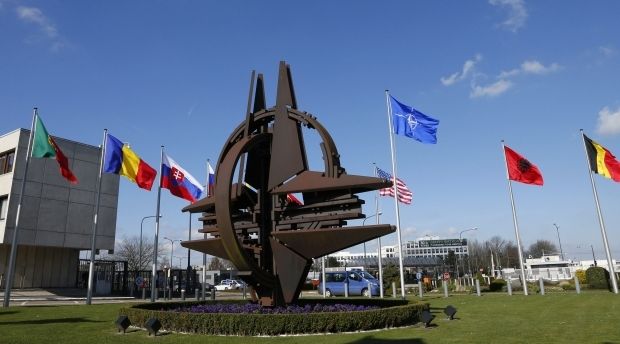
"The situation is ripe with potential for either dangerous miscalculation or an accident that could trigger a worsening of the crisis or even a direct military confrontation," said the group of 14 -- including former Russian foreign minister Igor Ivanov, ex-German defense minister Volker Ruehe and colleagues from Britain, France, Spain and Turkey -- in a report published by the European Leadership Network, Reuters reports.
With both Russia and NATO intensifying military exercises because of the crisis in Ukraine, incidents such as mid-air face-offs between rival military jets are on the increase. Calling for a high-level NATO-Russia meeting, the group said rules for communication at sea and in the air were paramount.
The London-based think-tank, which this month said both sides were training for the possibility of war, said it had recorded 66 "close military encounters" between Russian and NATO military forces, and between Russia and neutral Sweden and Finland, which NATO counts as partners.
It has been keeping count since March 2014, when Russia annexed the Crimean peninsula from Ukraine. The following month, a separatist war broke out in eastern Ukraine between pro-Russian rebels and government forces.
NATO rejected any suggestion that its military exercises make war in Europe more likely and said even before any new agreements were made, Russia could take steps to ease tensions.
"Russia has many tools already available to avoid unintentional conflict, to reduce tensions and to increase transparency, ranging from arms control agreements to voluntary measures," NATO's chief spokesperson Oana Lungescu said. "It should ... focus on implementing its existing commitments."
In turn, Russia denies its exercises pose any hazard.
Russian snap exercises in March were one of the Kremlin's biggest shows of force since the start of the Ukraine crisis. It put the navy's Northern Fleet on full combat readiness in Russia's Arctic North, close to Norway, a NATO member.
NATO has also held exercises -- not on the same scale -- mainly in eastern Europe and the Baltics. Along with its partners, the 28-nation alliance will hold its biggest military exercise in more than a decade from October, although they are taking place in Italy, Spain and Portugal and with a focus also any potential threat along NATO's southern flank.
The report said an "action-reaction cycle" was now under way between NATO and Russia that could be hard to stop.
"History is littered with examples of international crises and tensions that developed a momentum of their own and resulted in conflict even when no one side intended it," it said.


